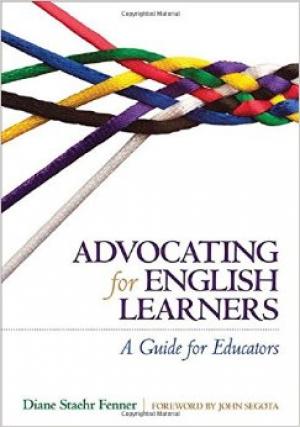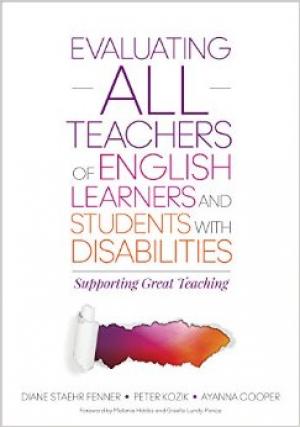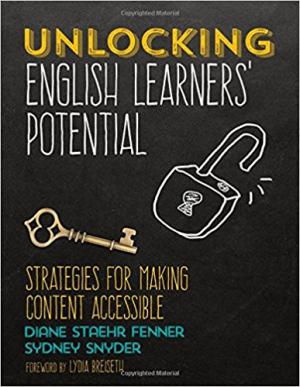
Diane Staehr Fenner, Ph.D., is the president of SupportEd. Diane founded SupportEd (formerly DSF Consulting) in 2011 as a way to serve all stakeholders who work to help ELs realize their full potential. At SupportEd, Diane serves as project lead for all the team’s work and communicates directly with clients. Some recent projects include developing a suite of five blended EL professional development modules for the National Education Association, creating a set of English language proficiency standards for adults and an online training module for the U.S. Department Education in partnership with the American Institutes for Research, revising the P-12 Professional Teaching Standards for TESOL International Association, and providing ESOL program support and technical assistance to the Syracuse City School District (NY).
Diane is an author of four books, a blogger for the Colorín Colorado website, and a frequent keynote presenter on EL education at conferences across North America. Diane was a research associate at George Washington University’s Center for Excellence and Equity in Education, spent a decade as an ESOL teacher, dual language assessment teacher, and ESOL assessment specialist in Fairfax County Public Schools, VA, and taught English in Mexico and Germany. Diane earned her Ph.D. in Multilingual/Multicultural Education with an emphasis in Literacy at George Mason University. She earned her MAT in TESOL at the School for International Training and her Masters in German at Penn State University. She lives in Fairfax, VA with her husband, three elementary age kids who are in a Spanish immersion program in their public school, a dog, a few fish, and an elderly hamster. Diane speaks fluent Spanish and German, grew up on a dairy farm in New York State’s Finger Lakes region, and is a first-generation college graduate.
Books by This Author
Advocating for English Learners: A Guide for Educators
English Learners are the fastest-growing segment of the K–12 population and educators of ELLs are often in a unique position to provide a voice for their needs. This book demystifies the techniques of advocacy for ELLs, including creating a shared sense of responsibility for ELL success, guidance for administrators, and tips for advocacy for ELLs' success beyond Grade 12.
Evaluating ALL Teachers of English Learners and Students With Disabilities
Teacher evaluation can be a valuable tool for evaluators and teachers alike. But it should never be used in a “one-size-fits-all” manner, especially when evaluating all teachers who work with the nation’s growing numbers of English learners (ELs) and students with disabilities.
Unlocking English Learners' Potential: Strategies for Making Content Accessible
Content teachers and ESOL teachers, take special note: if you’re looking for a single resource to help your English learners meet the same challenging content standards as their English-proficient peers, your search is complete. Just dip into this toolbox of strategies, examples, templates, and activities from EL authorities Diane Staehr Fenner and Sydney Snyder, which includes tips on:
Articles
Blog Entries
- TESOL Report: The Changing Role of the ESL Teacher
- AFT President Calls for Halt on High Stakes Linked to Common Core
- Advocating for ELLs in Implementing the CCSS
- TESOL International Association Issue Brief on the CCSS for ELLs
- Teaching Science to English Language Learners: What do the NGSS Tell Us?
- The Academic Language of Mathematics
- Common Core Math for English Language Learners
- Meeting the CCSS Needs of Young Dual Language Learners
- ELLs are Everyone’s Kids: The Role of Collaboration in the CCSS
- Alliance for Excellent Education’s Building on the CCSS to Improve Learning for ELLs





